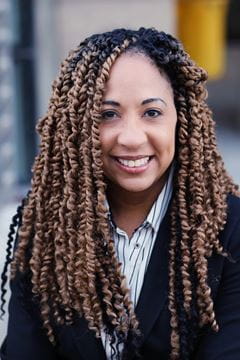
Lori E. Crosby, PsyD
- Co-Director, Innovations in Community Research, Division of Behavioral Medicine and Clinical Psychology
- Director, CCTST, Community Engagement Core
- Psychologist, Research, Division of Behavioral Medicine and Clinical Psychologist
- Professor, UC Department of Pediatrics
- lori.crosby@cchmc.org
- Board Certified
About
Biography
I am a clinical psychologist and researcher. In my patient care, I specialize in treating adolescents and young adults with conditions such as chronic pain and sickle cell disease. I seek to help them with managing their disease, treatment adherence and transitioning to adult healthcare.
I am the co-director of Innovations in Community Research in Cincinnati Children’s Division of Behavioral Medicine and Clinical Psychology. I also direct Cincinnati Children’s Center for Clinical and Translational Science and Training (CCTST) Community Engagement Core where I help the community and researchers work together on health projects.
I was inspired to work with young people after I lost a childhood friend to cancer. I chose to do research because I wanted to help as many children and families as I could. With my research, I strive to learn the best ways for the medical team and patients and families to work together to improve treatment and the family's quality of life.
My areas of research interest include self-management, treatment adherence, healthcare transition, recruitment and retention of minorities in research, integrating design thinking into research, implementation science and community engagement.
I hope to find answers to a number of questions with my research, including:
- How do we engage adolescents and young adults with sickle cell disease in managing their condition?
- How can we facilitate shared decision-making between providers and families of youth with sickle cell disease?
- How can we make it easier for youth to follow their medical regime?
- How can patients, families and advocacy groups partner with academic researchers to solve health challenges?
- How do bias and other systemic factors impact care and outcomes for vulnerable or underserved populations?
- How can we integrate technology so we can reach more individuals/communities?
Engaging patients and communities allows us to develop innovative and feasible solutions to health challenges.
I am proud to be an elected fellow of the American Psychological Association (APA) and to have received their Division 54 Diversity Award. I’m also a committee member for the National Academies of Sciences, Engineering, and Medicine’s effort titled Addressing Sickle Cell Disease: A Strategic Plan and Blueprint for Action.
PsyD: Wright State University, Dayton, Ohio, 1995.
Residency: Cincinnati Children's Hospital Medical Center, Cincinnati, OH.
Fellowship: Clinical Psychology, INTERACT Behavioral Healthcare Services Inc, Columbus, OH, 1995-1996.
Interests
Adolescents and young adults; sickle cell disease; transition to adult care; chronic pain; migraines; diversity and inclusion
Services and Specialties
Interests
Community-engaged research; self-management; quality improvement; sickle cell disease; health disparities; patient centered outcomes; shared decision making; health services research
Publications
Implementing a Faculty Diversity, Equity, and Inclusion Strategic Plan Using a Quality Improvement Approach. The Journal of Pediatrics. 2025; 276:114374.
Disparities in adolescent controller medication adherence, treatment barriers, and asthma control. Pediatric Pulmonology. 2024; 59:3288-3297.
A health equity ECHO for clinicians of individuals with SCD. 2024; 1.
Community Health Worker and Mobile Health Programs to Help Young Adults with Sickle Cell Disease Transition to Using Adult Healthcare Services – the Comets Study; Results from Patient-Reported Outcomes at 6 Months. Blood. 2024; 144:1066.
Prospective Biopsychosocial Impacts of Stress and Disease Stigma Among Adolescents and Young Adults with Sickle Cell Disease. Blood. 2024; 144:3693.
Empowering Adolescents and Young Adults with Sickle Cell Disease: Development of a Shared Decision-Making Toolkit for Disease-Modifying Therapies. Blood. 2024; 144:605.
Acceptability and Feasibility of Salivary Stress Research with Adolescents and Young Adults with Sickle Cell Disease. Blood. 2024; 144:1067.
Community-Engaged Research in Psychological Interventions for Pediatric Sickle Cell Disease: A Scoping Review. Blood. 2024; 144:7524.
Location, Location(s), Location(s+): Moving from Acute to Chronic Pain in SCD Pain in School-Age Children. Blood. 2024; 144:5360.
Feasibility of a clinic-based, multicomponent hydroxyurea adherence intervention for adolescents and young adults with sickle cell disease. Pediatric Blood and Cancer. 2024; 71:e31144.




Patient Ratings and Comments
All patient satisfaction ratings and comments are submitted by actual patients and verified by a leading independent patient satisfaction company, NRC Health. Patient identities are withheld to ensure confidentiality and privacy. Only those providers whose satisfaction surveys are administered through Cincinnati Children’s Hospital Medical Center are displayed. Click here to learn more about our survey